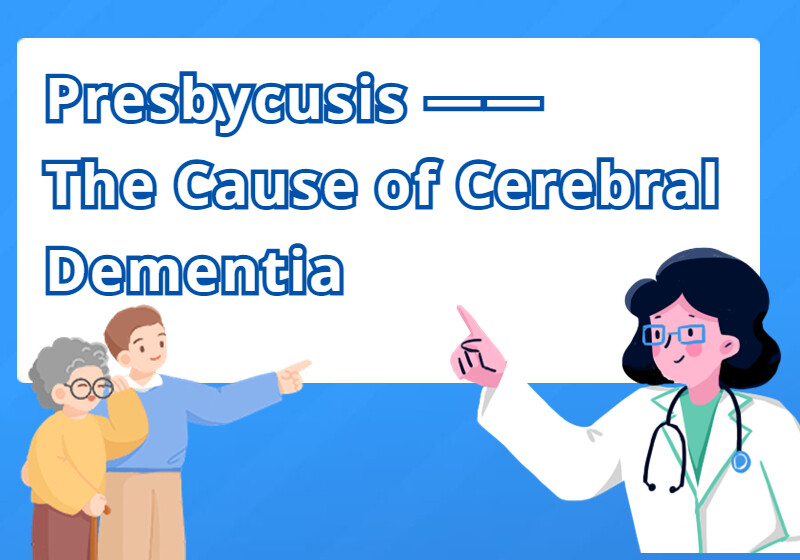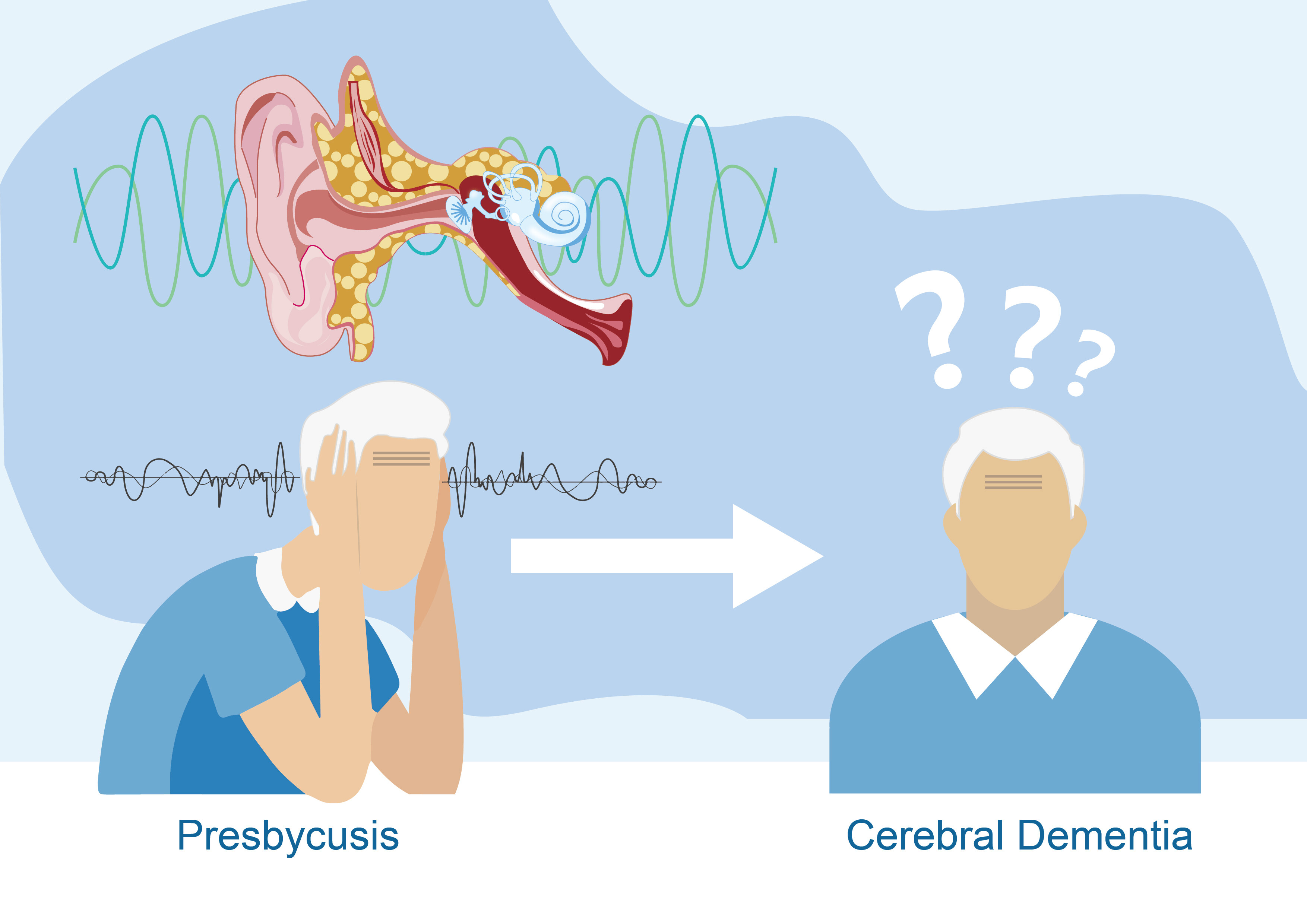Email cannot be empty
Password cannot be empty
Email format error
Email cannot be empty
Email already exists
6-20 characters(letters plus numbers only)
The password is inconsistent
Email format error
Email cannot be empty
Email does not exist
6-20 characters(letters plus numbers only)
The password is inconsistent


Senile deafness is a symmetrical and progressive high-frequency hearing loss that occurs with age, and is one of the common health problems in the elderly population. The causes and mechanisms of elderly deafness are complex and may be related to various factors such as genetics, environment, metabolism, blood vessels, immunity, etc.
Senile deafness not only affects hearing function, but also leads to a decrease in brain function, increasing the risk of neurological and psychiatric disorders such as cognitive impairment, dementia, and depression.
What other symptoms can age-related deafness cause in the elderly population?

1. Cerebral atrophy
Senile deafness can lead to a decrease in gray and white matter in the auditory cortex and other auditory related brain regions, which may be due to neuronal degeneration caused by a lack of auditory stimulation. In addition, age-related deafness can also affect brain regions related to cognitive functions such as memory, attention, and execution, such as the hippocampus, prefrontal lobe, temporal lobe, etc. This may be due to increased cognitive load or cross mode compensation caused by hearing impairment.
2. Cognitive decline
Senile deafness can affect multiple cognitive domains, such as memory, attention, execution, language, visual space, etc. Senile deafness may affect cognitive function through various mechanisms, such as decreased neural plasticity caused by lack of auditory stimulation, increased cognitive load caused by auditory impairment, isolation and depression caused by decreased social interaction ability, etc.
3. Dementia
Senile hearing loss is an important risk factor for dementia, especially Alzheimer's disease. According to relevant studies, there is a positive correlation between age-related deafness and the incidence and progression rate of dementia, that is, the more severe the hearing loss, the higher the risk of dementia, and the faster the deterioration of dementia.

So how to prevent and intervene in elderly deafness?
1. Take care of your ears
Avoid allowing elderly people to stay in noisy environments for too long. If necessary, protective equipment such as earplugs or earmuffs can be worn.
2. Control chronic diseases
There are many elderly people who suffer from chronic diseases. It is necessary to seek medical attention in a timely manner, regulate medication, and control indicators such as blood pressure, blood sugar, and blood lipids. At the same time, it is necessary to break bad habits such as quitting smoking, quitting alcohol, and exercising more to maintain physical health and reduce illness.
3. Regularly check hearing
Elderly people should regularly go to hospitals or fitting centers for hearing tests. Once hearing loss is found, it must be treated in an appropriate manner as soon as possible to reduce any adverse effects of hearing loss on their daily lives.
